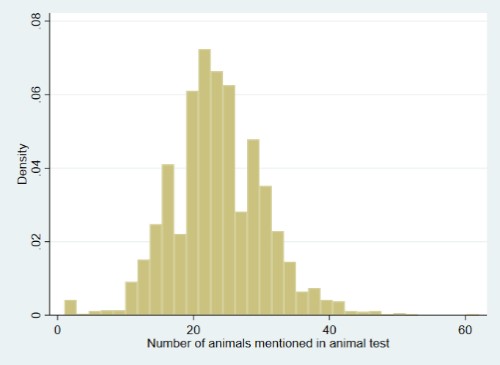The MRC National Survey of Health of Development (NSHD) assessed their cohort members (CMs) during the study’s age 53 sweep using the Verbal Fluency (Animal Naming) Test.
Details on this measure and the data collected from the CMs are outlined in the table below.
| Year of data collection: | 1999 |
| Domain: | Verbal fluency |
| Measures: | Verbal/semantic fluency |
| Associational fluency | |
| Executive function | |
| CHC: | Glr (Long-Term Storage and Retrieval) |
| CLOSER Source: | Explore this sweep in CLOSER Discovery: NSHD 1999 (Age 53) (opens in a new tab) |
| Administration method: | Research nurse; face to face computer-assisted personal interview (CAPI); read aloud |
| Procedure: | Participants were asked to name as many different animals as possible within a one-minute timeframe. The interviewer made a note of each named animal and entered the total number into the CAPI programme. Repetitions, named animals (e.g. Bambi), and redundancies (e.g. white cat, black cat) were not included in the total score. |
| Link to questionnaire: | https://skylark.ucl.ac.uk/NSHD/lib/exe/fetch.php?media=questionnaires:1999-capi.pdf (opens in new tab) |
| Scoring: | Total number of animals named |
| Item-level variable(s): | None |
| Total score/derived variable(s): | anin Explore these variables in CLOSER Discovery: NSHD 1999 Main Home Visit Dataset (opens in a new tab) |
| Descriptives: | Raw score |
| N = 2,949 | |
| Range = 1 - 62 | |
| Mean = 23.56 | |
| SD = 6.91 | |
(click image to enlarge) |
|
| Age of participants (months): | Mean = 641.47, SD = 2.09, Range = 636 - 650 |
| Other sweep and/or cohort: | NCDS – Age 50 – Verbal Fluency (Animal Naming) Test |
| NCDS – Age 62 – Proposed repeat of tests at age 50 | |
| BCS70 – Age 46-47 – Verbal Fluency (Animal Naming) Test | |
| ALSPAC – Focus on Mothers 2 – Verbal Fluency Test | |
| ALSPAC – Focus on Mothers 3 – Verbal Fluency Test | |
| ALSPAC – Focus on Mothers 4 – Verbal Fluency Test | |
| Source: | Taken from Section B (cognitive assessment) of the Cambridge Mental Disorders of the Elderly Examination (CAMDEX) (Roth et al., 1986). |
| Technical resources: | None |
| Example articles: | Hatch, S. L., Feinstein, L., Link, B. G., Wadsworth, M. E., & Richards, M. (2007). The continuing benefits of education: adult education and midlife cognitive ability in the British 1946 birth cohort. The Journals of Gerontology Series B: Psychological Sciences and Social Sciences, 62(6), S404-S414. |
| Murray, G. K., Jones, P. B., Kuh, D., & Richards, M. (2007). Infant developmental milestones and subsequent cognitive function. Annals of Neurology, 62(2), 128-136. |
For the named items in the table above, links are provided (where applicable) to their corresponding content on CLOSER Discovery.
Go to:
- Overview of all cognitive measures in NSHD
- Overview of adulthood cognitive measures across all studies
This page is part of CLOSER’s ‘A guide to the cognitive measures in five British birth cohort studies’.
